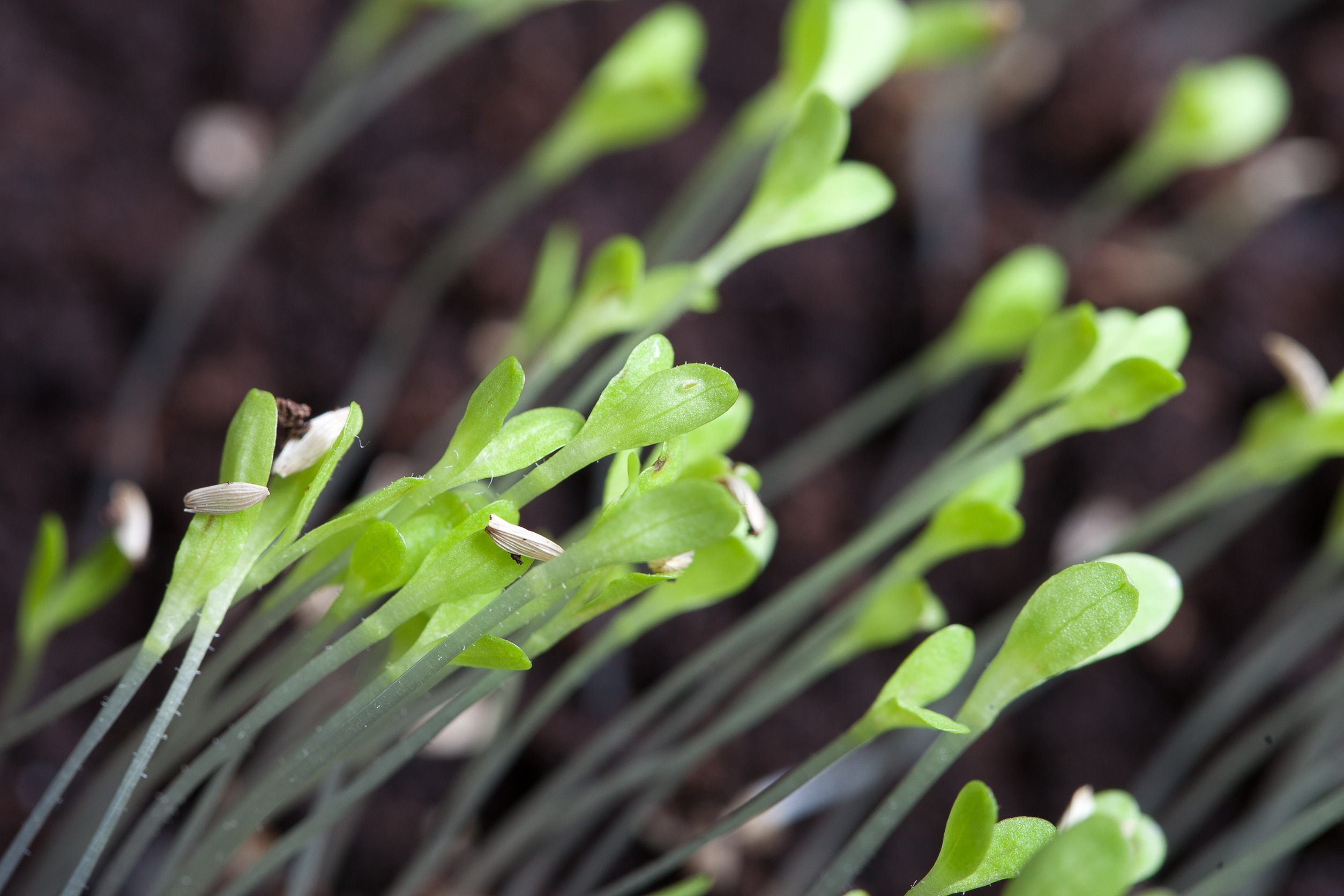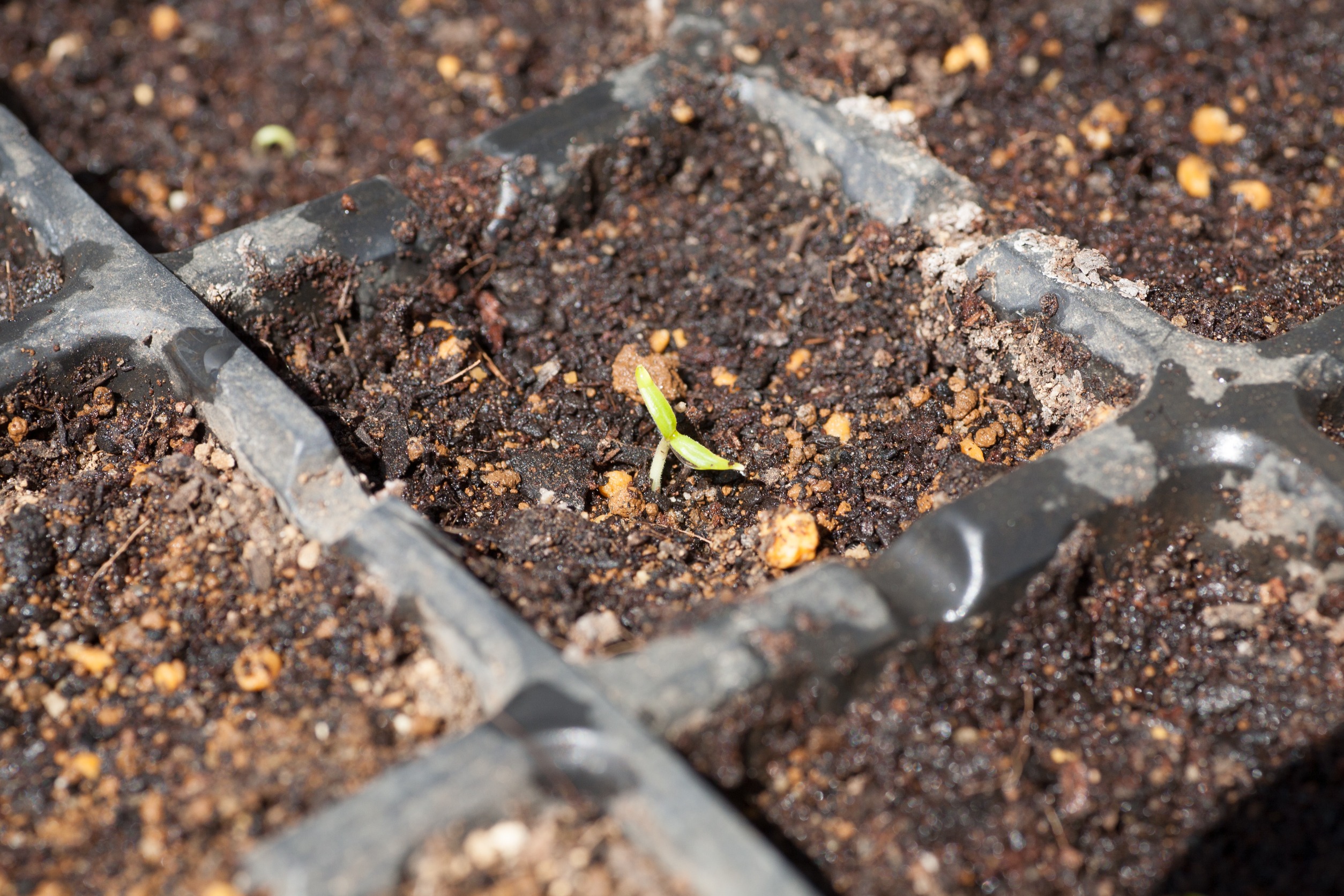
Image Credit: 123RF
Germination is the process by which a plant sprouts from its seed. Because it mostly happens underground, it’s such a mysterious and almost magical occurrence. One day, you’re popping seeds into a moist soil mix, and the next, you’ve got bright green seedlings popping up. It’s a simple yet incredible feat of Mother Nature that such a miniature-sized organism is capable of making its way above ground to seek sunlight. Seed starting is all about this process, so I wanted to talk a bit about it, the requirements for germination, and germination times.
Germination Requirements
Germination requirements differ depending on the plant in question, but all plants require the following:
- Moisture
- Suitable temperature range
- Oxygen availability
Contrary to popular belief, most seeds don’t need light to sprout. But it’s handy to have lights on and ready since your seedlings will require light as soon as they emerge from the soil.
Germination Times

Image Credit: 123RF
Not all seeds sprout at the same rate. While environmental conditions may alter germination time (e.g., if the soil is too cold, tomato seeds may take longer to germinate), some seeds naturally take a lot longer to pop up out of the ground. Knowing how long a seed should take to germinate is an integral part of the seed starting process. If quick-to-sprout seeds like mizuna and lettuce are taking longer than seven days, you can be sure there’s a problem with your setup or your seeds. Here are a few examples of germination times for favorite garden vegetables:
- Tomatoes: About a week
- Eggplant: About a week
- Beans: About a week
- Kale: 4-5 days
- Chard: 4-5 days
- Lettuce: 3 days
- Parsnip: Up to two weeks
*note these times are based on optimal conditions, slightly colder or warmer soil may delay germination
Having Problems?
If you’ve waited patiently and seedlings aren’t showing up, you may have a bad batch of seeds on your hands. You may also not be meeting the optimal conditions for germination.
Different varieties of the same plant may germinate at different rates. As always, I suggest taking notes for next year. Knowledge is power, after all!

Steph Coelho is a freelance writer gardening in zone 5b. She is a certified Square Foot Gardener and has taught various garden-related workshops. When she’s not digging in the dirt or writing, she’s cooking up fresh produce, running, or listening to her favorite podcasts.
Leave a Reply